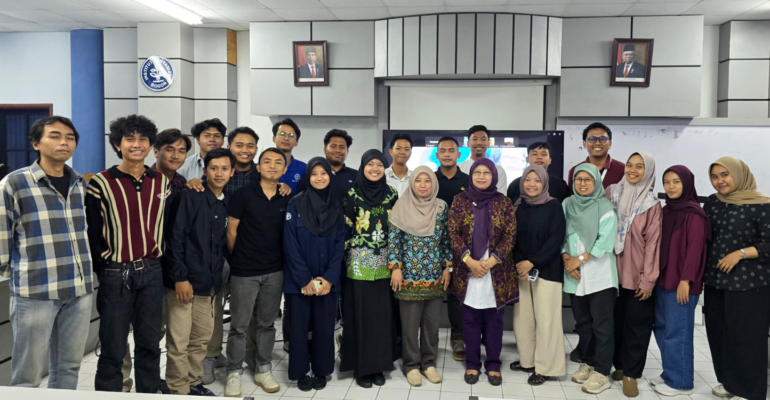FPIK IPB University Reveals Potential and Benefits of Fishery Products in Free Nutritious Food Programme

In a strategic discussion held at IPB University’s Faculty of Fisheries and Marine Science (FPIK), experts and academics highlighted the importance of integrating fishery products in the free nutritious food programme initiated by the government. The discussion titled “Opportunities for Fish Food and Dairy in Free Nutritious Meals” opened up insights into the various aspects of nutrition and the feasibility of fishery products as an important component in a healthy diet for the community.
This discussion activity was guided by one of the young lecturers of FPIK IPB University, Moh Burhanuddin Mahmud, from the Department of Aquaculture. The Dean of FPIK IPB University, Prof Fredinan Yulianda, emphasised the importance of scientific studies on fish milk as supporting scientific data that can help the government in making free nutritious food programmes.
Secretary to the Director General of Data and Statistics (PDS) of the Ministry of Maritime Affairs and Fisheries, Dr Mahmud, revealed that fish milk is one of the beverage products enriched with fish protein hydrolysate (HPI).
“HPI has received a positive response and is one of the solutions to increase protein consumption. Currently, KKP is actively introducing various products using HPI to the public, including market snacks and other foods, with the aim of expanding understanding and acceptance of these innovative products,” Dr Mahmud explained.
Meanwhile, Dr Wini Trilaksani, Lecturer at IPB University’s Department of Aquatic Products Technology (THP), explained that improving diet can support the prevention of health problems in Indonesian society.
“The impact of nutritional problems can affect the quality of human resources. Adequate nutritional intake, especially protein and omega 3 can support the development of brain tissue,” she explained.
Dr Wini also explained about Fish Protein Hydrolysate (HPI) and Fish Protein Concentrate (KPI). According to her, HPI is produced from a hydrolysis process, breaking down fish protein into peptides and amino acids that are easily absorbed, with a strong taste and aroma but rich in essential amino acids because it undergoes a more complex hydrolysis process than KPI.
Prof Mala Nurilmala, from the Department of Aquatic Products Technology (THP) at IPB University, emphasised the importance of “Blue Food” or food sources from environmentally friendly waters in national food policy.
She explained, “Diversification of local fishery products, including the development of attractive processed menus for children such as nusantara food, nuggets, and fish sausages, is key to increasing the intake of quality protein. It can also develop production from SMEs in the community and support the Free Nutritious Food programme.”
“By supporting small and medium enterprises in the fisheries sector, I hope to increase production capacity and innovation. This initiative aims to educate the public on the importance of fish consumption, ensure sustainable seafood production, and integrate fishery products into programmes so that people get good nutrition,” Prof Mala said. (*/Lp) (IAAS/RSL)



